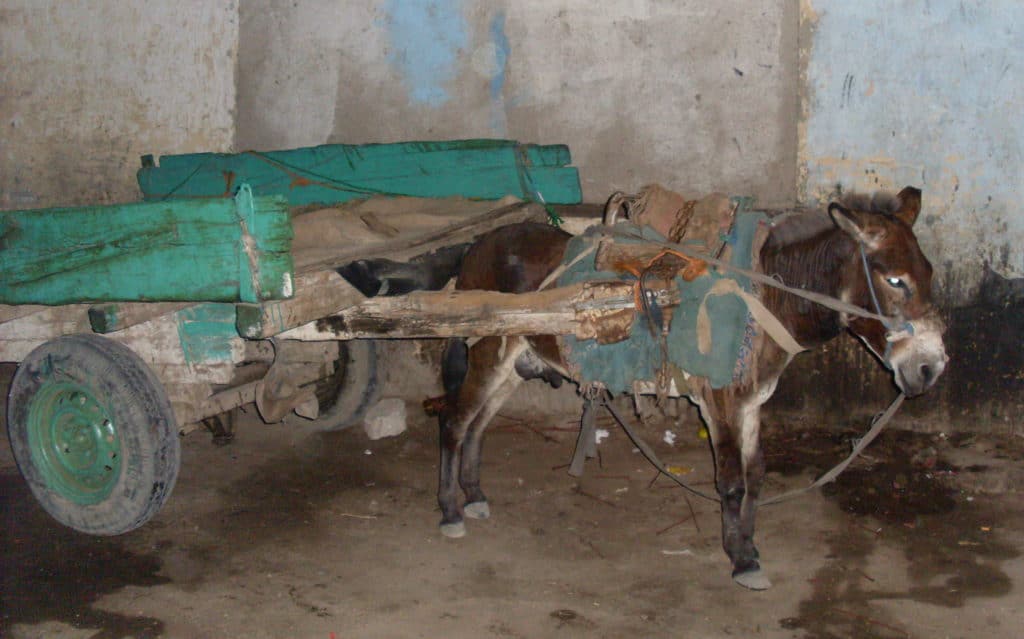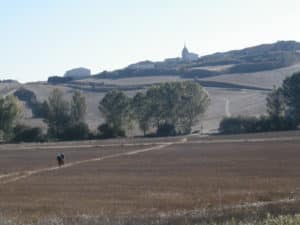
I like Djibouti in the morning.
I wake up early in the US, so jetlag throws my natural tendency into overdrive with a 3:15, 4:30, or if I’m lucky, 5:00 am wake-up call. I have spent the past week in Djibouti at a training conference for our new Somalia program. US Government restrictions on official travel to Somalia (and Puntland and Somaliland) have channeled a large number of donor conferences and foreign involvement in the Horn of Africa to Djibouti. Arriving on business, working all day and a large part of the night, I have sadly not been able to see much of the city, to say nothing of the country.
However, the ridiculous hour that my body insists is time to get up also makes it easy to be the early morning jogger. I do not normally like these people. And in fact, I do not normally like to run. But as a good friend says about writing, I like having run. And so, after ten minutes of forcing the eyelids closed, knowing that the battle was lost, I roll out of bed and by 5 am have my tennis shoes on the quiet morning streets of Djibouti. I start my run.
There is, as with all colonial experiences, a foreign sector. The hotels used for official business are always in this zone. At this hour, though, I am the only international around. Guards laze back on their cheap plastic chairs, bored and letting their rifles droop on the ground. A few women are bent straight over at the waist, whisking the road clean of dust. They turn at the sound of my feet on the beaten asphalt. Unlike the daylight hours, our eyes meet for a moment. Whether they are more emboldened with no one watching or too tired to pretend not to see me I cannot say.
The guard at the end of the barricaded street is a worker at the hotel. I am a paying guest and there are vast gulfs of space between our two worlds. However, at this hour I get a nod as I pass by. We are both among the few awake and that is some shared bond.
In Africa, local athletes rally at city stadiums or school yard fields to run. Streets in the developing world are among the worst places for exercise – normally. Taxis and diesel fumes and vendors spreading their wares out to the edge of rushing traffic make road running impossible during the day. In the morning stillness I pad down the center of the street luxuriating in the space.
Djibouti is an old French outpost on the Indian Ocean. Strategic only for its location, the country has continued to mine its sovereignty rather than build any real industry. It is easy to get a feel for the city just a few minutes into my run. The avenues are straight and angled to the cross streets. The expat sector is on a jutting peninsula of land so I run out from this zone down the wide boulevards. Returning along residential streets is easy with the confidence of knowing my hotel is at land’s end.
I raise a hand to the small merchants in each of the roundabouts I pass on my jog. There is an inevitable clustering of these small stores lit with white fluorescents and hawking dry goods, browning bananas and cylinders of propane. They wave back. Taxis tend to coagulate at odd corners and I do not greet them for fear they will think I am a fare and fire up the cars. Most of the drivers are sleeping on a piece of cardboard next to their cars with thin cloth scarves covering them as some defense against the mosquitos.
Turning into the side street the crackle of an intercom flares up and the recorded call to prayer begins from the side mosque. A group of guards eating from a large platter of rice call out in French, “Bon Courage!” I respond with “Merci” and turn sharply down another street to avoid the stray dog that suddenly jumped to attention at the sight of me. Courage is needed indeed.

The chewed leaf stimulat khat is as prevalent here as in Yemen just across the water. Evenings on the street in Djibouti are always marked by men sitting on a stoop and feeding sprigs of khat into their mouths. The effect of each leaf fades fast so users clasp their bunch of leaves in their left, preparing the next bunch of leaves with their right. Those who are already heavily into the chew grab you on the street and try to pull you in to look at their cheap trinkets that one finds from Senegal to Kenya and that are probably made en masse in southern China. Spraying bits of green leaf and their khat eyes crazed by the prospect of tourist dollars, it’s a side of Djibouti I have come to dislike within just a few days.
Running up the side streets I can see gnawed stems of the khat and wisps of micro-thin cheap plastic used to wrap the bunches. These are always found in piles where the users stood together the day before. Sure enough, I turn a corner and see a big sign for “Khat Awady”, or “Evening Khat”. It is 5:30 am now, and instead of the huddled groups of drugged men, I am greeted by several older men passing me on their way to mosque.
Sun licks at the sky while a woman coaxes a fire into life near the taxi stand. She sells rice and meat to drivers and there are a few women like her on this street. Squat, dusty trees shelter the place and improve her stand’s marketability. She is either too busy to acknowledge me or I have crossed some time limit when foreign men are not allowed to directly into women’s eyes.
The end of the run is the hardest. The fatigue sets in and the exoticness of the place wear off and it is tough to stay motivated. I approach the end of the street and can see the hotel lights. They are preternaturally bright and speak to foreign currency establishments with generators and razor wire enclosures. This is not generally how I want to see another country but this is the job and the reality of Africa.
Sweat rolling off me in the humid air and feet beginning to hurt as much as my sides, I see someone coming down the road. He has a bag packed and the look of a night watchman coming off duty. The lilt in his step is does not fit with the other laborers I see packed onto mini-buses, driven into the foreigner zone for their menial jobs.
“Courage!” he says as I run by with a great smile and nod. I smile, nod back.





Wonderful post. That first pic just hooked me on to reading the whole post. Those kind of transports are used at some places in India too.